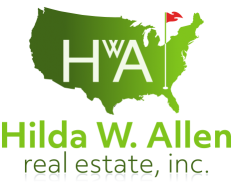Selling a Golf Property?
- Is now the right time to Sell a Golf Property?
There's no precisely right or wrong time. The timing of a sale depends more on the structure and objectives of the owning entity than the dynamics of the market. A change in corporate strategy, dissolution of a partnership, retirement of an owner or lack of interest by family members to continue the business can trigger a decision to sell a property. Declining market share and losses are also drivers.
- Cash Flowing or Cash Going?
If a property has sustained losses, or if revenues have been flat for two years or more, it signals an urgent need either to sell the property or fix the business plan.
Don't let the property drift. You won't see improved results unless you are willing and able to execute a comprehensive plan that addresses the causes of the decline and deploys the right people and financial resources needed to resolve them. Whatever course of action you decide on, execute with a comprehensive plan.
Don't try to improve at the margins while competitors are taking market share from you. Above all, don't wait until a downward trend in revenue becomes irreversible. If you can't fix it your best decision is to sell as soon as possible.
We can market your property with one of these four effective methods.
- Presenting the Hybrid Sealed Bid Offering (HSBO)
In the current market environment this is the fast track. It enables the seller and the buyer to complete a transaction with maximum discretion. In most cases we can bring buyers to the table and close in ninety days from the date the property is first advertised.
- Buyers must execute a Confidentiality Agreement and show proof of funds
- Bids are confidential.
Your property is never publicly priced. You set the reserve price. - No contingencies; due diligence occurs before bidding.
- The sale is final on bid day.
- Earnest money is non-refundable.
- At the discretion of the seller a final bidding round may be held privately among the top two or three top bidders for the property.
- Closings usually occur ninety days from the date the property is first advertised.
Instead of using a list price to bargain down from, a prospective buyer must establish the property's value independently, knowing that he (or she) is competing with an unknown number of competing purchasers. This process creates an authentic sense of urgency, an element that is often missing in real estate transactions to the seller's detriment. We are selective in the properties we market with this method and our track record has been over 95% in closings. The buyer approves and funds a marketing budget prepared by our advertising agency.
- Conventional Listings
We will market your property as a conventional real estate listing. Most sellers are familiar with this method which is also used for selling homes. We will list the property with an Exclusive Right to Sell Agreement for a defined period. Our web site followers will be notified and mailings will go out to selective prospect lists. The property will be shown by appointment or we will schedule specific times and dates for showings. A "Listing Fee" is due at the time the property is listed.
- Reserve Auction
A public auction where the bidding is by "public outcry"; the Seller sets a reserve (minimum bid). Bidding has to reach the reserve price in order for there to be a sale. The seller funds a marketing budget prepared by our advertising agency. The safeguards of a HSBO remain for the seller except that the bidding is public.
- Absolute Auction
A public auction where no reserve price has been set. The highest bid takes the property. Some sellers are reluctant to hold an Absolute Auction because a sale to the highest bidder is mandated by law even if the seller sustains a loss. However, bidder interest is usually high; consequently the final bid price can match or exceed market value. The safeguards of a HSBO remain for the seller except that bidding is public and there is a risk of an irrevocable sale at an unfavorable price. Offsetting that risk is the probability of a larger number of bidders that will support a higher price.
Depending on each situation all of these methods have advantages and drawbacks. Consider each option carefully in relation to your property. By all means talk to us about it. We may be able to help.




